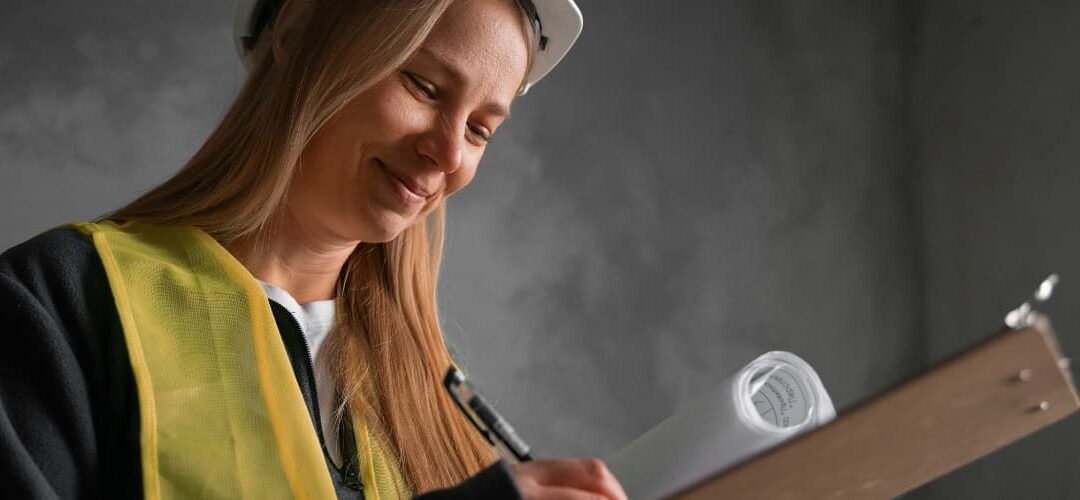Imagine you’ve ordered a new smartphone online. After days of anticipation, the box arrives, and you excitedly unpack your shiny device—only to discover a scratch on the screen or a defect in the camera lens. Suddenly, your excitement turns into frustration and disappointment. What went wrong?
Behind every product you trust—whether it’s your smartphone, car, clothing, or medicine—stands a silent yet powerful guardian: the Quality Control Inspector.
But who exactly is a Quality Control Inspector, and what do they really do? Is their job simply looking at products, or is there more involved? How do you become one, and what skills and education are needed? What kind of salary can you expect? And how does the role differ depending on your location or industry?
In this comprehensive article, we will uncover everything you ever wondered about this crucial profession.
| Sección | Resumen |
|---|---|
| What Does a Quality Control Inspector Do? | Outlines core responsibilities such as visual inspections, precise measurements, documentation, compliance verification, and cross-functional collaboration. |
| Essential Background and Skills | Covers the mix of hard skills (technical knowledge, measurement techniques, data analysis) and soft skills (attention to detail, communication, problem-solving) required. |
| Educational Qualifications and Certifications | Explains the education path from a high school diploma to vocational training and degrees, along with key certifications like CQI, ISO 9001, and industry-specific credentials. |
| Salary Expectations and Career Prospects | Provides an overview of global salary ranges, growth opportunities, and how factors like experience, certifications, and industry impact earning potential. |
| Industry and Geographical Differences | Highlights how quality control practices vary across different industries (automotive, electronics, pharmaceuticals, etc.) and regions due to specific standards and cultural factors. |
| Step-by-Step Guide to Becoming a QC Inspector | Details a sequential pathway covering education, hands-on experience, certifications, and job application strategies to launch a career as a Quality Control Inspector. |
| Challenges and Rewards | Discusses common challenges (such as repetitive tasks and production pressures) alongside rewards like career stability, competitive salaries, and the satisfaction of enhancing product safety. |
| Final Thoughts | Summarizes the pivotal role of Quality Control Inspectors in preventing defects and ensuring consumer safety while outlining the significant career benefits. |
2. What Does a Quality Control Inspector Do?
A Quality Control Inspector examines products, materials, or components to ensure they comply with specific quality standards, regulations, and customer requirements.
While the specifics of their duties can vary depending on the industry, company size, and type of products involved, their overarching goal remains consistent: ensuring that the final product is safe, reliable, and meets customer expectations. Inspectors function as the critical checkpoint between production and the end customer.
On a daily basis, Quality Control Inspectors engage in a variety of tasks, including:
Inspection and Testing:
- Conducting visual inspecciones de calidad to detect obvious defects such as cracks, scratches, color discrepancies, and incorrect labeling.
- Utilizing specialized testing equipment (such as micrometers, calipers, gauges, coordinate measuring machines, and spectrometers) to perform accurate measurements and verify that products conform to specifications.
- Running functional tests to evaluate performance, durability, and reliability, depending on the nature of the product.
Documentation and Reporting:
- Preparing detailed inspection reports to document findings, including descriptions of defects, their severity, and suggested corrective actions.
- Recording inspection data accurately to facilitate traceability and quality monitoring over time.
- Communicating inspection outcomes to supervisors, engineers, and production teams clearly and promptly.
Ensuring Compliance:
- Verifying that products meet industry-specific and regulatory standards such as ISO 9001 (general quality standards), ISO 13485 (medical devices), FDA guidelines (pharmaceutical and food products), or automotive-specific standards like IATF 16949 or VDA 6.3.
- Participating in internal and external audits to ensure that the company maintains continuous compliance with relevant standards and regulations.
Collaboration and Problem-solving:
- Working closely with production managers, engineers, suppliers, and other stakeholders to identify root causes of defects or production issues and implementing effective corrective and preventive actions (CAPA).
- Advising production teams on adjustments to production processes or equipment settings to enhance product quality and minimize defects.
Beyond these standard duties, the responsibilities of Quality Control Inspectors can also vary significantly by industry. For instance, inspectors in the automotive industry may perform detailed dimensional checks on parts using advanced metrology equipment, whereas inspectors in pharmaceuticals are more concerned with cleanliness, contamination, packaging integrity, and regulatory documentation.

2. Key Responsibilities of a Quality Control Inspector
Although specific duties vary based on the company, product type, and industry, the core responsibilities usually remain consistent across sectors. Below are the primary responsibilities that a Quality Control Inspector typically fulfills:
Product and Material Inspection
The cornerstone of a QC Inspector’s role involves meticulous product and material inspection. This often includes:
- Visual Inspection: Checking for surface defects, discoloration, improper labeling, damages, or misalignments. Examining packaging materials and conditions to ensure safe transportation and shelf life.
- Physical and Dimensional Testing: Using precise measurement tools such as calipers, micrometers, gauges, and coordinate measuring machines (CMM) to ensure products adhere strictly to engineering specifications. Conducting destructive or non-destructive testing methods, depending on product requirements, to verify durability and strength.
- Functional Testing: Evaluating products to confirm they operate correctly under specified conditions. Identifying potential performance failures that could impact customer experience or safety.
Documentation and Record-Keeping
Quality Control Inspectors spend significant time documenting their findings accurately to maintain transparency, traceability, and regulatory compliance. Key tasks include:
- Creating comprehensive inspection reports detailing defects, causes, and recommended actions.
- Recording detailed measurements, testing outcomes, batch numbers, and inspection dates for future reference.
- Maintaining records for audits and regulatory inspections, facilitating smooth compliance processes.
Compliance and Standards Enforcement
Ensuring that products conform to industry regulations, international standards, and customer requirements is central to the QC Inspector’s duties:
- Familiarity with and enforcement of standards such as ISO 9001, FDA guidelines, or automotive standards like IATF 16949 and VDA 6.3.
- Conducting audits internally or with suppliers to confirm compliance with established protocols.
- Reporting any violations promptly, suggesting corrective actions, and monitoring implementation effectiveness.
Collaboration with Cross-functional Teams
QC Inspectors often collaborate closely with other departments to address quality issues effectively. They regularly work alongside:
- Production and Operations Teams: Advising on corrective actions when defects are identified, proposing process improvements.
- Engineering and R&D Teams: Providing essential feedback on product design, specifications, and manufacturing methods.
- Purchasing and Supply Chain Teams: Communicating quality concerns related to raw materials or components supplied externally.
Continuous Improvement and Corrective Actions
Inspectors actively participate in problem-solving and continuous improvement initiatives:
- Analyzing inspection data to identify recurring defects or potential risks.
- Implementing corrective and preventive action (CAPA) processes to remove underlying causes of defects.
- Collaborating on quality improvement plans, training production teams, and introducing advanced inspection methods.

3. Essential Background and Skills for a Quality Control Inspector
A career as a Quality Control Inspector demands a specific combination of education, practical experience, technical skills, and certain innate personal qualities. While the exact qualifications and skills may differ depending on the industry, type of product, and individual company needs, certain competencies and backgrounds are universally essential for success in this role.
To clearly understand the required background and skills, let’s break this down into essential hard skills, soft skills, and industry-specific requirements:
Essential Hard Skills for Quality Control Inspectors
Quality Control Inspectors must possess a solid foundation of technical competencies. These are practical, measurable abilities directly tied to their job performance. Core hard skills for this profession include:
- Technical Knowledge and Industry Expertise:
- Understanding specific manufacturing processes relevant to their sector (e.g., electronics assembly, automotive component manufacturing, pharmaceutical production).
- Knowledge of industry-specific standards and quality certifications such as ISO 9001, IATF 16949, FDA guidelines, HACCP (food safety), GMP (Good Manufacturing Practices), and others.
- Familiarity with regulatory requirements and documentation processes related to inspections, audits, and compliance.
- Inspection and Measurement Techniques:
- Proficiency in the use of precise measurement tools like calipers, micrometers, gauges, optical comparators, and coordinate measuring machines (CMM).
- Knowledge of testing methodologies, including destructive and non-destructive testing (NDT), visual inspection techniques, and functional testing protocols.
- Data Analysis and Reporting Skills:
- Ability to document inspection results accurately and clearly, generating comprehensive quality reports.
- Skills in analyzing quality data to identify patterns, trends, and root causes of defects.
- Familiarity with quality management software or systems used to record, track, and manage quality control data efficiently.
- Computer and Software Proficiency:
- Experience working with Microsoft Office (especially Excel and Word), and potentially specialized statistical analysis software.
- Familiarity with advanced quality control tools, ERP systems, or digital inspection platforms.
Essential Soft Skills for Quality Control Inspectors
While hard skills equip inspectors with the technical competencies needed to perform their tasks effectively, it is their soft skills—those personal attributes and interpersonal skills—that often differentiate exceptional inspectors from average ones. Key soft skills required include:
- Attention to Detail
- Communication Skills
- Analytical Thinking and Problem-Solving
- Organizational and Time-Management Skills
- Adaptability and Flexibility
Industry-Specific Skills and Requirements
While the above-mentioned skills apply broadly to most Quality Control Inspectors, some additional competencies may be necessary depending on the specific industry:
- Automotive Industry:
- Deep familiarity with automotive-specific standards like IATF 16949, VDA 6.3, and ISO/TS standards.
- Proficiency in advanced measurement tools and statistical process control (SPC) methods.
- Electronics Industry:
- Knowledge of IPC standards for electronics manufacturing, including soldering quality standards and electronic assembly processes.
- Experience with automated optical inspection (AOI) and X-ray inspection systems used for inspecting electronic circuits.
- Pharmaceutical Industry:
- Comprehensive understanding of FDA regulatory standards, GMP, ISO 13485, and cleanroom protocols.
- Skills in contamination prevention, sterile handling, and meticulous documentation practices required by regulatory audits.
- Textile and Apparel Industry:
- Expertise in assessing fabric quality, stitching integrity, dye consistency, labeling accuracy, and garment conformity to specifications.
- Understanding of garment testing techniques for colorfastness, durability, and shrinkage.
- Food and Beverage Industry:
- Familiarity with HACCP principles, FDA food safety regulations, and sanitation requirements.
- Skills in microbiological testing, sensory evaluation, and shelf-life verification methods.
- Aerospace Industry:
- Proficiency in non-destructive testing techniques such as ultrasonic testing, radiographic testing, and dye penetrant inspection.
- Detailed knowledge of aerospace-specific standards such as AS9100 and NADCAP accreditation procedures.

5. Salary of a Quality Control Inspector and Career Prospects
The career of a Quality Control Inspector is rewarding not just because of its critical role in product safety and quality assurance, but also because it offers competitive salaries, steady employment opportunities, and clear pathways for professional growth. Salaries vary depending on multiple factors, including geographical location, industry, experience level, educational background, and specialized certifications.
Average Salary Overview Globally
Globally, Quality Control Inspectors typically earn competitive salaries, often starting modestly and increasing significantly with experience and specialization. While entry-level inspectors can expect salaries suitable for their education and training, inspectors who gain experience, obtain relevant certifications, and develop specialized expertise are likely to see considerable salary increases.
According to industry data, typical salaries for Quality Control Inspectors globally can range widely:
- Entry-Level: Generally ranges from $25,000 to $40,000 per year.
- Mid-Level (3-5 years experience): Approximately $40,000 to $60,000 per year.
- Experienced (5+ years, specialized skills or certifications): $60,000 to $85,000 per year or higher, especially in sectors like aerospace, automotive, or pharmaceuticals.
Quality Control Inspector Salary Comparison by Country
Salary expectations can vary greatly depending on geographic location due to differences in industry demands, cost of living, and economic conditions. Here’s an overview of salary expectations for Quality Control Inspectors in several key countries:
Career Growth Opportunities for Quality Control Inspectors
Quality Control Inspectors have numerous pathways for career advancement, making it a rewarding career choice for those looking for stability and growth potential. Common pathways include:
- Senior Quality Inspector:
- Experienced inspectors can advance to senior roles overseeing inspection teams, mentoring new inspectors, and handling complex quality issues.
- Quality Control Supervisor:
- Supervisors manage inspection teams, coordinate inspections and audits, and work directly with management to implement quality control initiatives and training.
- Quality Assurance Manager:
- QC Inspectors frequently advance to Quality Assurance (QA) roles, becoming responsible for broader quality system management, regulatory compliance, audits, and overall quality strategy within their organizations.
- Auditor and Consultant Roles:
- With substantial experience and specialized certifications (such as ISO auditor certifications), inspectors often transition into auditing or consulting roles. These positions offer greater flexibility, higher compensation, and opportunities to work across different industries or regions.
- Specialist Roles in Specific Industries:
- QC Inspectors with deep expertise in specialized industries (such as aerospace, automotive, or pharmaceuticals) frequently progress into highly specialized roles—such as Regulatory Compliance Specialists, Quality Engineering Specialists, or industry-specific auditors—that command significantly higher salaries.
Future Job Prospects and Stability
Quality control is increasingly critical due to heightened consumer expectations, stricter regulatory environments, and global supply chain complexities. Therefore, the demand for skilled QC inspectors is stable and growing across many industries worldwide, including:
- Aerospace and automotive industries driven by safety requirements and international standards.
- Pharmaceuticals and medical devices due to stringent regulations.
- Electronics and technology sectors influenced by rapid innovation and consumer demands for quality.
- Food and beverage industries where quality inspections are essential for consumer safety.
Overall, career prospects in quality inspection and management remain robust, with increasing emphasis on quality assurance, global standardization, and regulatory compliance driving ongoing demand for skilled professionals.
8. Challenges and Rewards for Quality Control Inspectors
Working as a Quality Control Inspector comes with its share of unique challenges and rewarding opportunities. While the role involves significant responsibility and attention to detail, inspectors also benefit from job stability, career advancement opportunities, and personal satisfaction knowing they directly contribute to customer safety and product excellence. Below, we explore both the common challenges and the fulfilling rewards that inspectors typically experience.
Challenges Faced by Quality Control Inspectors
Quality Control Inspectors routinely face specific challenges in their daily roles, requiring resilience, adaptability, and strong problem-solving skills. Here are the most common obstacles inspectors typically encounter:
- Pressure to Maintain Accuracy Under Deadlines:
- Inspectors must ensure precision while often working within tight production schedules, balancing meticulousness with efficiency.
- Errors can lead to significant issues such as costly recalls or safety hazards, making the inspector’s job particularly high-stakes.
- Repetitive and Monotonous Tasks:
- Many inspection processes involve repetitive checks, measurements, or testing procedures, potentially leading to fatigue or decreased attention to detail.
- Maintaining consistent focus and avoiding complacency over long inspection periods can be challenging.
- Dealing with Production Pressures:
- Inspectors often face conflicting interests—such as production departments emphasizing speed and quotas, while quality inspectors prioritize thoroughness and strict adherence to standards.
- This can result in tension between departments, requiring strong interpersonal and negotiation skills.
- Keeping Up with Evolving Standards and Regulations:
- Quality control standards regularly evolve, requiring inspectors to continuously update their knowledge through training, certifications, and ongoing education.
- Staying current with changing international regulations and industry-specific requirements can be demanding.
- Handling Difficult Conversations:
- Communicating inspection failures or product defects to supervisors, production teams, or suppliers can be uncomfortable and stressful.
- Inspectors must handle these discussions diplomatically yet assertively, often facing resistance or disagreements.
- Working in High-Responsibility Environments:
- In industries like pharmaceuticals, aerospace, automotive, or food processing, inspectors’ decisions directly impact consumer safety.
- Managing this responsibility requires emotional resilience and clear decision-making, even under stressful circumstances.
Rewards and Job Satisfaction for Quality Control Inspectors
Despite these challenges, being a Quality Control Inspector is highly rewarding. Inspectors gain professional fulfillment from several key aspects of their work:
- Contribution to Consumer Safety and Product Excellence:
- Inspectors directly protect customers by ensuring products meet safety, reliability, and quality standards, contributing positively to public trust and brand reputation.
- Seeing tangible results from their work—such as reducing customer complaints or preventing recalls—can be deeply satisfying.
- Career Stability and Job Security:
- Quality control remains vital across all manufacturing sectors, ensuring steady employment opportunities.
- Skilled inspectors, especially those with certifications and industry expertise, enjoy stable careers with minimal risk of unemployment due to sustained demand for quality professionals.
- Clear Pathways for Career Advancement:
- The role provides clear opportunities for professional growth, including moving into supervisory or management positions such as Quality Assurance Manager, Senior Quality Inspector, Auditor, or Consultant.
- Inspectors have ample opportunities for continuous learning, skill enhancement, and specialization.
- Financial Rewards and Competitive Salaries:
- Inspectors are typically well-compensated, especially as they gain experience, certifications, and move into higher-level roles.
- Specialized industries (like aerospace or pharmaceuticals) offer particularly attractive salary packages due to stringent regulatory standards and high responsibility.
- Variety in Daily Work and Problem-Solving Opportunities:
- Despite some repetitive tasks, quality inspection work can be varied and stimulating, especially when troubleshooting complex quality issues or collaborating across departments to resolve production challenges.
- Inspectors who enjoy problem-solving and critical thinking will find this aspect of the role especially rewarding.
- Global Opportunities and Transferable Skills:
- Quality control skills and certifications are internationally recognized and transferable across different industries and geographical locations.
- This flexibility allows inspectors to pursue international careers or transition between industries, providing unique professional experiences.
How to Overcome Common Challenges as a QC Inspector
Quality Control Inspectors can overcome typical job-related challenges by adopting proactive strategies, including:
- Regularly participating in professional development and training programs to stay current with standards and regulations.
- Developing strong interpersonal and communication skills to effectively manage conflicts or challenging discussions.
- Implementing systematic inspection processes and leveraging technology (like automated inspection systems) to minimize monotony and maintain accuracy.
- Cultivating a collaborative relationship with production and management teams to balance quality demands with productivity targets.
- Managing workload and maintaining a healthy work-life balance to avoid burnout and maintain attention to detail over the long term.
9. Final Thoughts
Working as a Quality Control Inspector indeed comes with its share of daily challenges, requiring a blend of technical skills, emotional intelligence, adaptability, and resilience. However, the profession also provides substantial rewards, including personal fulfillment from ensuring product safety and quality, excellent career advancement opportunities, job security, and competitive compensation.

